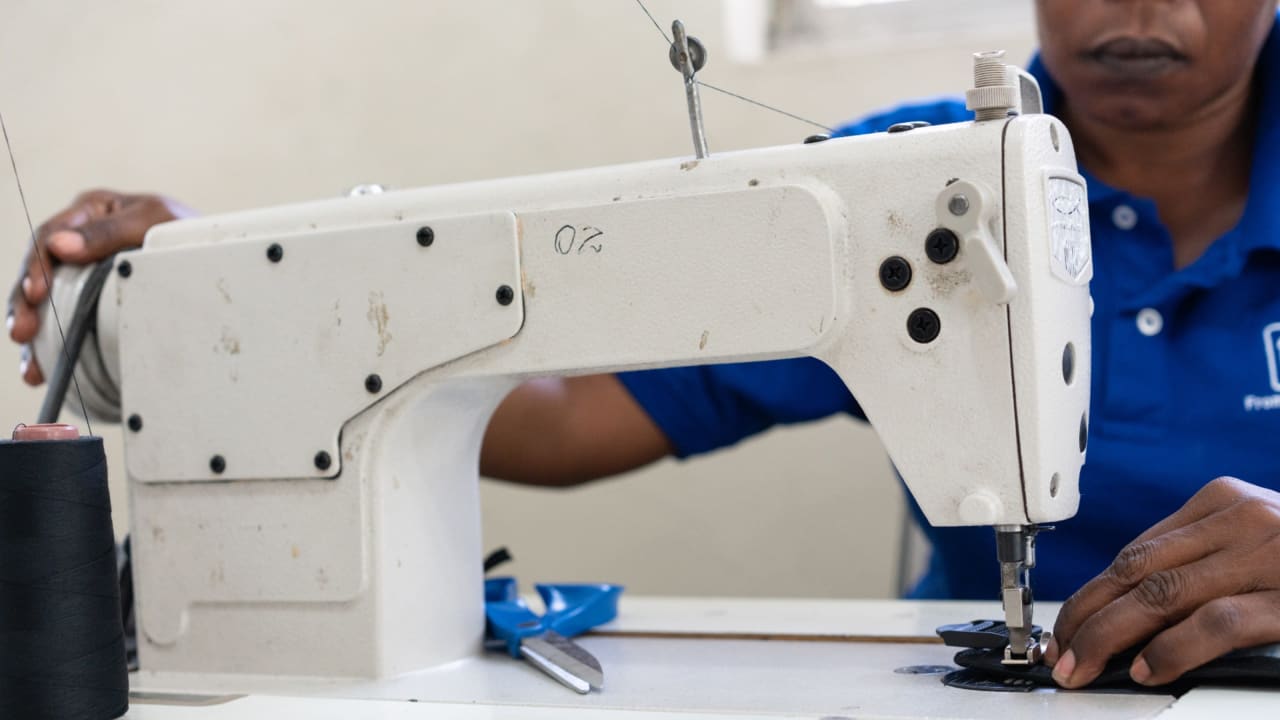Choosing a business idea is one of the most important parts of your journey as an entrepreneur. Many people rush this stage, but it is worth taking the time to ensure your idea has the best chance of success.
Articles
Choosing a winning business idea
Choosing a business idea is one of the most important parts of your journey as an entrepreneur
Written by Helen Munshi 2017 Available in English, French, Portuguese and Spanish


Could you learn a new skill to give you a business opportunity? Photo: Andrew Philip
There are two main ways to generate business ideas: firstly by looking at the market around you and secondly by considering your own interests and skills. Both are important. You should offer goods or services that there is a demand for and that you will have the ability and commitment to deliver.
Method 1: The market
The first way to generate business ideas is to look at the market. It is essential that you sell goods or services that people want and that there is demand for throughout the year.
Demand in the market
- Consider the demand around you. What is being offered in the neighbouring marketplace that is not offered locally? Visit the area, speak to the customers and observe what is being bought and sold.
- Think about future demand. What is the next logical progression of a product or service? For example, if someone is selling fresh food in the local market, could you offer to deliver it to people’s homes instead?
- Look through magazines or newspapers to understand what is currently selling and any new trends in the market.
Solve a problem
- Consider your own buying patterns. Think about what goods or services you wish you could buy. What part of life currently causes you problems? Could you come up with a solution to that problem? You can also speak to family, friends and people locally about what problems they would like solved and what they like to buy.
- Are there problems with the goods or services that local businesses sell? Could you solve one of those problems?
Look at the competition
- Visit your local town or village and speak to the stall and shop owners. Ask them some basic market research questions such as, ‘What is selling well?’, ‘How many do you sell a day?’, ‘How much competition do you have?’. You can also find out this information from observing the buying patterns of the customers and looking at the other businesses in the area.
- Can you build on an existing business idea? Instead of looking at a problem with a current business, identify businesses that you admire and that are doing well. Can you improve on what they are selling? Could you offer a better or more accessible service?
You do not need to come up with a completely original business idea. In fact, it is a good sign if people are already making money from a particular idea: it shows that there is a demand for it. However, it is important to try to make your offering slightly different so that you do not flood the market with the same product or service. If there are too many businesses selling the same thing, then the customers will be able to bargain the price down, as supply will be greater than demand.
Method 2: Your skills, assets and interests
The second way to generate business ideas is to consider your skills, assets and interests. Many people think that as long as there is demand for a product or service, then it is a good idea. This is partly true; however, you also need to find the right idea for you.
Skills are often learnt and can therefore be added to if you are missing something important for running your business. Some of the key skills needed to run a business are: sales, marketing, negotiation (with customers and suppliers), book-keeping, organisation and specific technical skills, such as carpentry or tailoring. For tasks such as book-keeping, it may be possible to hire someone to help you.
Assets are the resources that people use to produce their livelihoods and to cope with any crises. They can be split into six main categories:
- human and spiritual (eg education, faith, health, skills)
- social (eg family and friends, religious groups)
- political (eg the ability to advocate to decision-makers)
- physical (eg house, equipment, vehicles)
- financial (eg cash or items such as jewellery that can easily be sold for cash)
- natural (eg soil, water, trees).
Write down a list of assets you have or that you can access. You can then use that list to come up with business ideas. For example, if you have access to land, think about ways you could use this to earn an income.
Now you can consider your interests and use these to come up with business ideas. Think about these questions:
- Which businesses do you find inspiring? If you could run any business that already exists, which one would it be and why?
- Which business owners do you look up to and why? Why do their goods and services really excite you?
- What do you enjoy doing in your spare time? Could you make that into a business?
- What did you enjoy doing when you were younger?
- What sort of lifestyle do you want? For example, do you want to be walking around making deliveries? Do you enjoy speaking to customers all day, or do you appreciate your own time and space?
Product or service?
The final thing to consider is whether you would prefer to offer a product or a service. A product generally requires more financial investment at the start and often takes longer to get to the selling stage. You will need to link with suppliers and potentially manufacturers, develop the goods and then transport them to your customers. However, it can be very profitable. If you provide a service, you do not need to go through these stages, and often service businesses need less financial investment. However, as you are trading your time for money, there will be a limit on how much you can earn, as you have limited time. In order to grow your business, you will need to take on staff.
The process of coming up with a business idea can be quite overwhelming. But every idea, no matter how small or silly, is useful, as it can result in other ideas. Carry around a notebook and write down ideas as they come to you. You will soon see potential business ideas everywhere you go.

Illustration: Petra Röhr-Rouendaal
Market research
Once you have chosen a potential business idea, it is important to carry out market research to make sure there is enough demand for your product or service.
Market surveys
Design a simple questionnaire to find out what your target customers want, with a maximum of ten questions. You need between 30 and 60 respondents for a reliable survey. Use the survey with people who represent the likely customers. Do not choose people you know.
Discussion groups
Get together a small group of your target customers to have a conversation about your business idea. You can ask them more complicated questions, such as which competitors they currently buy from and what would make them change to a new business.
Testing the market
It is a good idea to test your products to find out if the quality is acceptable, whether the price is right and if the selling location is appropriate. Test using free samples, or try selling samples. Ask customers for feedback if possible, such as whether they would change anything about the product or service.
See Footsteps 65: Adding value to food for a longer article on market research. Visit www.tearfund.org/footsteps to download a free copy
View or download this resource
Get this resource
Get this resource
Written by

Written by Helen Munshi
Helen Munshi is an enterprise strategy and training consultant. She has worked with organisations in Malawi and India, and has written a self-employment training course for entrepreneurs in Tanzania.
Similarly Tagged Content
Share this resource
If you found this resource useful, please share it with others so they can benefit too.

Subscribe to Footsteps magazine
A free digital and print magazine for community development workers. Covering a diverse range of topics, it is published three times a year.
Sign up now - Subscribe to Footsteps magazine






